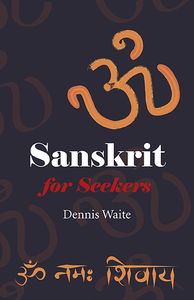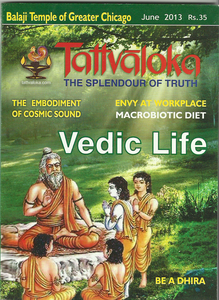क्वभातिदिक्कालकथाविनाऽस्मान्
दिक्काललीलेहवपुर्वयम्चेत्।
नक्वापिभामोनकदापिभामो
वयम्तुसर्वत्रसदाचभामः॥१८
Kva bhAti dikkAla kathA vinAsmAn
dikkAla lIleha vapurvayam chet
na kvApi bhAmaH na kadApi bhamaH
vayam tu sarvatra sadA cha bhAmaH —18
asmAn vinA dikkAla kathA Kva bhAti = without us where does the saga of space-time shine?edikkAla lIleha vapuH vayam chet = when we identify with the body, the play of space-time begins; na kvApi bhAmaH na kadApi bhamaH = we do not exist in a place; we do not exist at a time; vayam tu sarvatra sadA cha bhAmaH = we exist everywhere at all times.
Where does the saga of space-time shine without us? When we identify with the body, the play of space-time begins. We do not exist in a place, we do not exist at a time. We exist everywhere at all times.
Atma is not localized at a place or time. Space and time are appearances in the self. Yet, due to ignorance we find ourselves localized in the space time framework. On gaining knowledge we know that it is only the body which is limited by space and time. The self is limitless spatially and temporally. Continue reading →
 My guide to Sanskrit, for seekers who do not want to learn the language but would like to be able to look words up in the dictionary, is now available in Paperback or Ebook format.
My guide to Sanskrit, for seekers who do not want to learn the language but would like to be able to look words up in the dictionary, is now available in Paperback or Ebook format.

